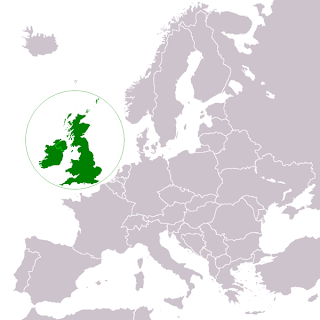 In the modern age in which we live, there is often considerable emphasis placed on the need to prove logically a statement; so that no other explanation could stand. This approach can be traced back to Descartes and was the precursor to the modern scientific method. It is, however, no real way to produce a sensation of certainty in our lives.
In the modern age in which we live, there is often considerable emphasis placed on the need to prove logically a statement; so that no other explanation could stand. This approach can be traced back to Descartes and was the precursor to the modern scientific method. It is, however, no real way to produce a sensation of certainty in our lives. The problem is a little difficult to describe easily and clearly, but I will do my best here. Essentially the problem is whether you place greater value on feelings or on the intellect. Some look for certainty through logic, others accept the possibility of doubt but look to their sense of self and feelings to make the best of the situation.
Some psychological models have used the idea of human beings as driven by desires and beliefs. Beliefs may be thought of as the way you perceive how to get your desires, and desires are wishes to experience – whatever they may be. Experience is made up of lots of things, but one thing it always includes is feeling. So, feelings are inescapable. For many people, some feelings occur more often than others. Indeed, it can even be that some feelings happen so often, people forget what the various other states ‘feel like’. Instead they concentrate only on a very narrow band of feelings. In some cases this may be a good thing, such as with positive emotions, in others, in the case of negative moods, it is not so good for the experiencer.
For some people life is racked with doubt. In order to try to escape from doubt and experience a more pleasant way of looking at the world, many modern minds seek out the pleasures of science, or more specifically the use of formal logic to solve their problems about life’s deepest issues. When something is logically provable, there can be no grounds for doubt and as such, feelings concerning doubt should disappear, so the logic goes: leaving behind on the experience of certainty.
It is quite natural to be doubtful about almost anything. Doubts are often caused by a feeling that a piece of information that is important has been has not been considered sufficiently. This is distinct from a piece of information that is not important and that has not been factored in. For example, ‘dinosaur fossils, when analysed by carbon dating, show the world must be at least 65 million years old; and very probably much more than that. But perhaps 1 in 1 million carbon dating tests is wrong. It is a subjective decision whether you think the problem with this piece of information is worth causing you to dispute the fossil evidence or not. Whatever decision you make, it could be doubted. This situation is subjective; and intellect and feelings are not necessarily in alignment.
There are a few situations that are logically provable and cannot be seriously debated: for example, all triangles have three sides. In such a case, it is not possible to argue with the validity of this statement. There is no room for doubt since, by definition, all triangles have three sides. In such a case, feelings and the intellect are in alignment.
As a result, even some of the best known theories in science today, such as the Theory of Evolution, remain just that, theories. They may be very good theories, but there is always a possibility that there something will discovered tomorrow that breaks the rule. So the elusive sense of certainty is not found with this method.
One defence strategy is to deny the subjectivity of the self and try to write it out of the equation altogether. However, such a move would be do deny experience – experiences have to be subjective, since no two people ever have quite the same experience. Consequently each viewpoint is subjective. To a point, there is no such as objectivity without some degree of contamination from the subjective viewpoints observing the ‘objective’ phenomenon.
Instead, in order to actually experience certainty from the real world, you do best to look to the feeling of certainty and consciously choose to focus your attention on that most of the time. Thus, if certainty is what you want to experience, focus your attention on that, rather than trying to prove something by fruitlessly trying to prove something with tools that are debatable in the first instance.
Here’s the punch line: you could only experience (feel) certainty by knowing what a lack of certainty feels like. Experience would numb without a sense of one thing being different from another. Consequently, look to your feelings. In order to experience certaintity, you have to be out of your mind…. Literally!












































